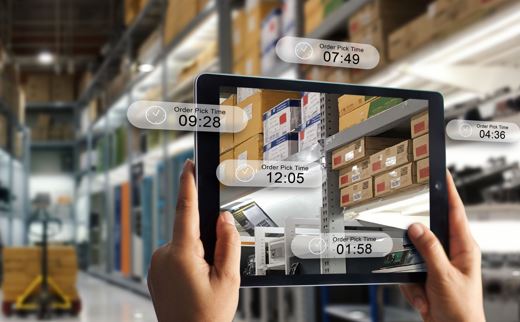
Micromanagement is something many do, but few admit. It’s one of the foremost examples of good intentions with often negative consequences. Especially in field sales management, micromanaging is rarely necessary.

Micromanagement is something many do, but few admit. It’s one of the foremost examples of good intentions with often negative consequences. Especially in field sales management, micromanaging is rarely necessary.

If you own a buy-and-sell business, chances are you’ve probably run into a sales order before. A sales order is a document used to confirm the price, quantity, delivery date, and features of the products and services purchased through a sale. B2B sales ordering is beneficial to sellers because it helps them track both their inventory and buyer orders.

Having access to information while out on the field is an invaluable resource for salespeople. Yet, until recently, they didn’t have the luxury of cloud computing. Instead, they often had to burn time and money getting pricing and inventory details from the office. Once back at headquarters, employees had to re-enter the order details into the computer manually.

The food and beverage industry is known for tight margins and stiff competition. To compete, succeed, and then maintain that success in this $6,383.49 billion industry, all business components need to work together seamlessly.

No matter whether it’s B2B or B2C, relationships can be difficult to manage. Manufacturers working with distribution partners sometimes have difficulty aligning goals that sit askance from one another. Maintaining brand consistency as products move through complex distribution networks can prove to be an additional frustration.

Creating sales success is easy when the data is captured and interpreted smartly. Monitoring analytics closely allows sales teams to refine their strategies and target key areas. In fact, in a recent survey of more than 1,000 sales organizations around the world, McKinsey found that 53% of those that are “high performing” describe themselves as prolific and effective users of analytics.

There have been a series of seismic business shifts over the past couple of years, but one area has endured: Sales Trends. That said, the need for creativity and resourcefulness is becoming increasingly important for sales and marketing teams to be successful as a new year beckons.

Skynamo – the leading provider of field sales technology – carried out extensive research recently. Spanning hundreds of manufacturers, wholesalers and distributors around the world, all with field sales teams, several pertinent challenges and successes were revealed over the course of the year.

Choosing the wrong software can be incredibly frustrating. It ends up slowing you down if it’s cumbersome, complex, difficult to use and not fit-for-purpose. If you’ve decided to buy, then here are seven key features we believe makes for the ‘right’ sales software for B2B product sales:

Skilled B2B field sales reps are the driving force behind every successful B2B organization. Irrespective of your industry and target audience, professional sales reps are essential to driving conversions.

Every entrepreneur is familiar with the hectic process of setting up a new business. Problems seem to leap out from any and every angle, whether it’s a spotty supplier, hardware malfunctions, or unsuitable staff.

As consumers have become more and more comfortable with online shopping, there has been an undeniable digital transformation in field sales. With the change in interface, digital expectations have changed, and today customers demand an online experience that mimics their past face-to-face shopping interactions.